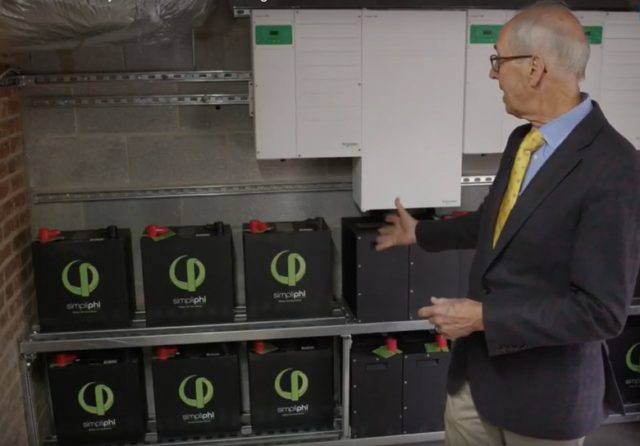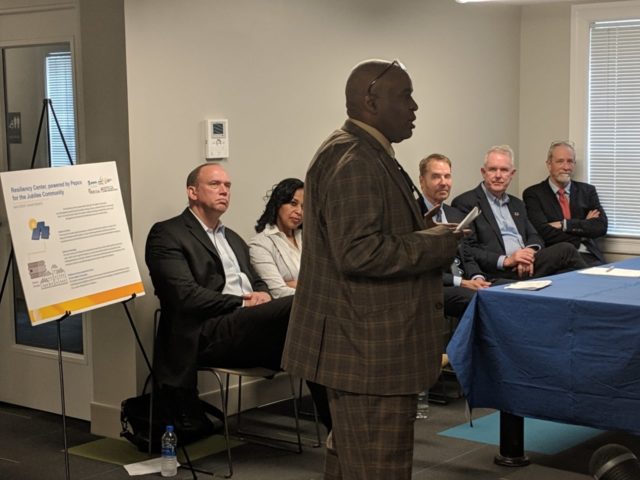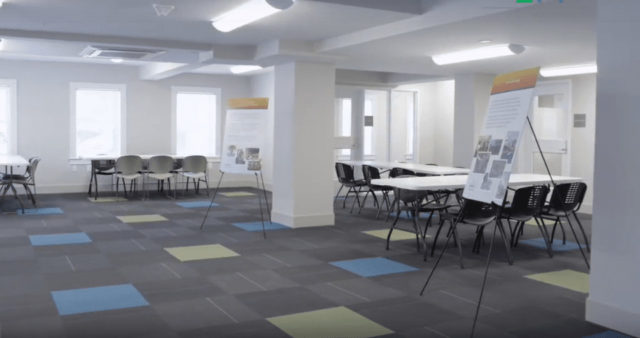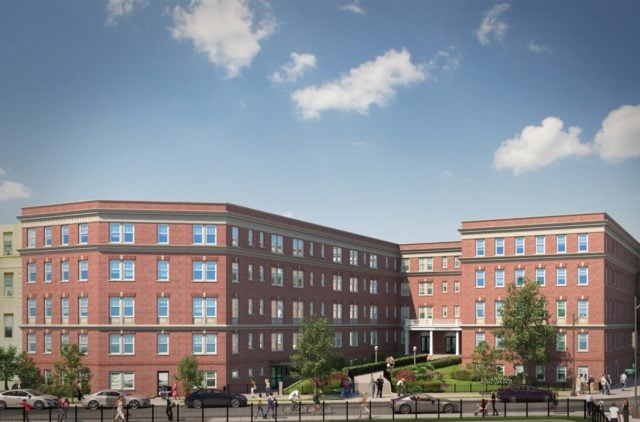Maycroft Apartments
Jubilee Housing’s Maycroft Apartments is the first affordable housing development in the District of Columbia to fully power a resiliency center through solar PV paired with a battery storage system (solar+storage).
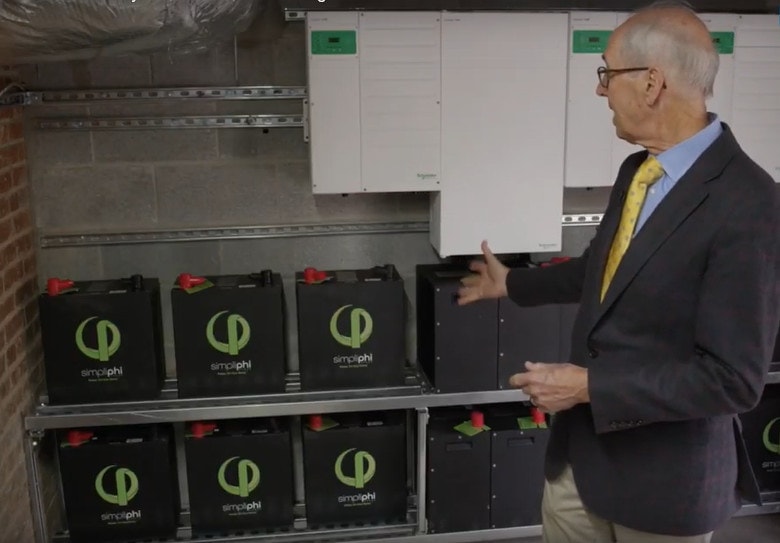
President and Co-Founder of New Partners Community Solar, Herb Stevens demonstrates how the Simpliphi batteries work with the rooftop solar array in a grid emergency. Photo Credit: Pepco
The residents of Maycroft, some of whom rely on electricity-dependent medical equipment and refrigeration for medication, now have access to an on-site resiliency center and community space in the event of a power outage, along with energy savings through community solar benefits.
The Resiliency Center Powered by Pepco for the Jubilee Community will provide backup power to critical loads for up to three days, including refrigeration for food and medication, exhaust and floor fans, lighting, outlets for charging cell phones and medical equipment, a microwave for food preparation, and a television. Solar+storage will also power lighting for stairwells and hallways throughout the complex.
In addition, Jubilee Housing and New Partners Community Solar are partnering to provide the benefits of the rooftop community solar installation directly to residents of the Maycroft through Solar for All, a program of the District of Columbia’s Department of Energy and Environment. Solar for All seeks to provide the benefits of solar electricity to 100,000 low-income households and reduce their energy bills by 50% by 2032. The program, which was established by the Renewable Portfolio Standard (RPS) Expansion Amendment Act of 2016, is funded by the Renewable Energy Development Fund (REDF). Solar energy generated at the Maycroft and other community solar installations around the city will allow New Partners to serve 100 residents of Jubilee Housing. Using an innovative model to pass community solar savings directly to low-income households, these residents will save on average $40 per household every month on utility bills.
The Maycroft Apartments were developed by Jubilee Housing. The Pepco Foundation provided a grant for the Resiliency Center. New Partners, Amidus, and Pepco, the local utility, designed the solar+storage system with technical assistance funding support from Clean Energy Group’s Resilient Power Project. The system includes 16 Simpliphi “PHI 3.5” Lithium Ferro Phosphate batteries, totaling 46 kilowatts/56 kilowatt-hours of energy storage, connected to a 62.4-kilowatt rooftop solar array. The system can automatically disconnect from the grid during a utility outage and enable power from the solar panels and batteries to continue providing resilient and reliable energy to critical loads. Pepco will be able to access real-time data from the system in an effort to better understand how battery storage interacts with the usage patterns of urban, affordable housing residents. This data will help inform future resiliency centers for low-income affordable housing communities.
The batteries and related equipment cost $90,000 and the installation cost $40,000. Development of the community rooftop solar array was already underway and cost $197,000. The Pepco Foundation provided $65,000 in funding to support the battery installation.
The Resiliency Center powered by Pepco for the Jubilee Community received Solar Builder Magazine‘s editor’s choice award for 2019 - read more here.
See also: News Clip, NBC 4 Washington: DC Affordable Housing Building Gets Solar Panels, ‘Resilience Center’
Photos
Click on the photos below to view full size with captions.
Installation Details
Year Commissioned
2019
Services Provided
Backup Power, Community Solar
Supported Infrastructure
Hallway and stairwell lighting, and a resiliency center that provides lighting, exhaust and floor fans, charging for phones and medical devices, refrigeration, television and microwave.
Solar
62.4kW
Storage
46kW/56kWh
Project Partners
New Partners Community Solar, Pepco Foundation, Jubilee Housing, Clean Energy Group, Amidus, District of Columbia’s Department of Energy and Environment
Associated Webinar
Maycroft Apartments: A Low-Income Solar+Storage Resiliency Center in DC (July 2019)





